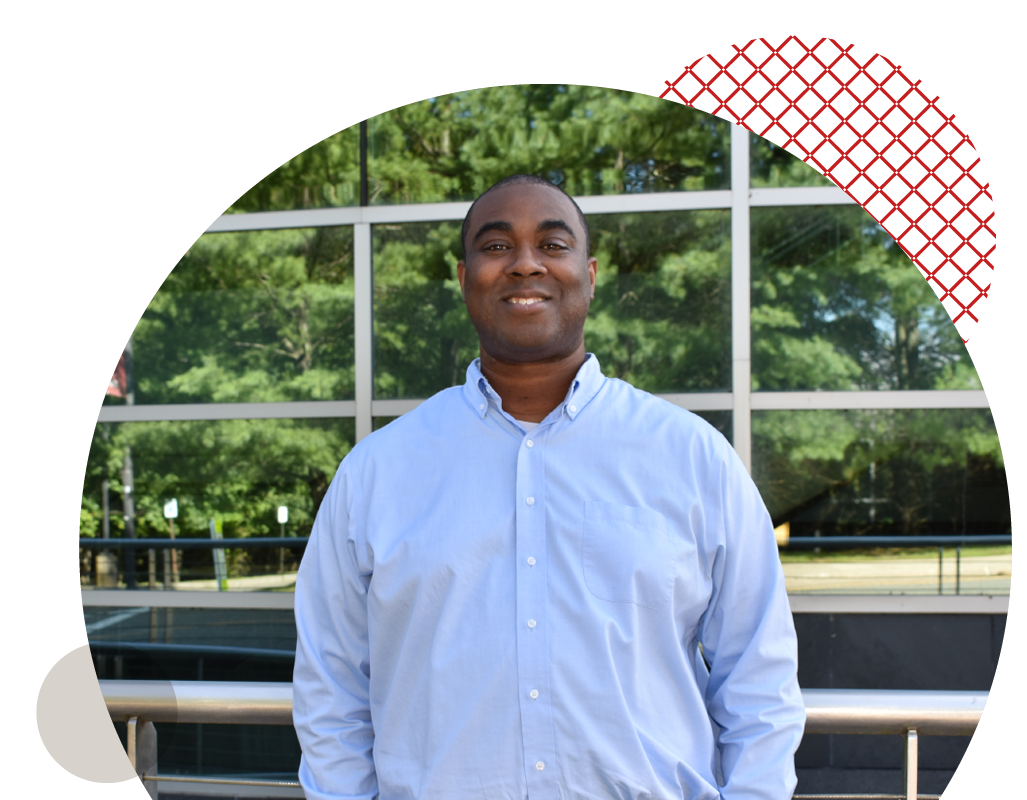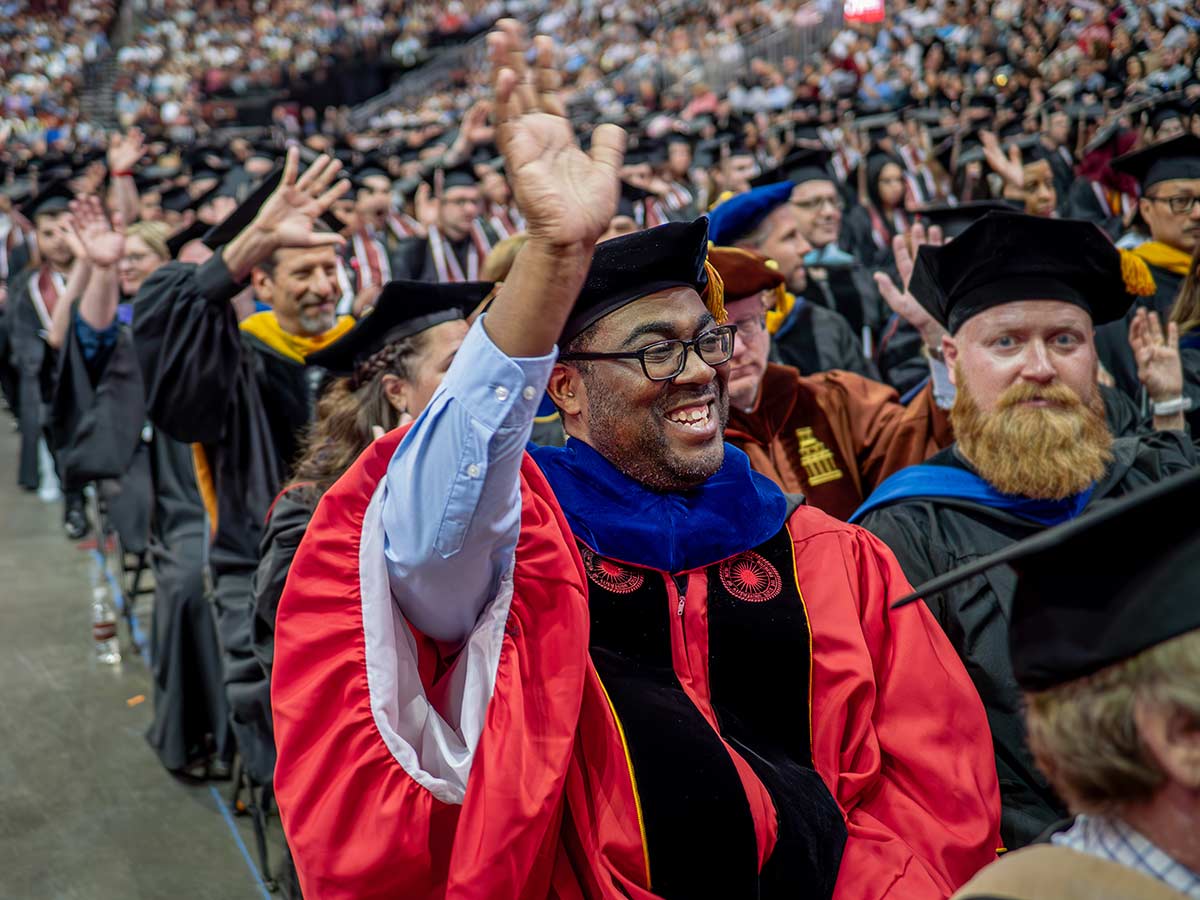Feature
How to Diversify
Corporate America

By Diane Couzens | Fall 2024
Since 2002, Ramapo College has proudly partnered with The PhD Project, a nonprofit organization dedicated to diversifying corporate America by increasing the diversity of role models in the classroom. Ramapo College has had six faculty members as PhD Project members: Assistant Professor of Accounting Dr. Wilson Rose; retired Professor of International Business Dr. Gladys Torres-Baumgarten; and past faculty members Dr. Tammi Redd, Dr. Roberto Saldivar, Dr. Alexis Smith and Dr. Shalei Simms. These individuals and other Ramapo alums have benefited from The PhD Project’s support, contributing to the project’s success in diversifying faculty and enhancing student success at the college.
Bernard J. Milano, a former chair and member of the Ramapo College Foundation board of governors, played a pivotal role in establishing The PhD Project 30 years ago. At the time, Milano was president of the KPMG Foundation, one of the founding partners.
“It was so important to change the system. Research showed there were very few African American accounting professors in the country, and at the same time, the accounting profession needed to be more diverse. There must be a linkage between diverse faculty and diverse students. We sought out individuals already in corporate careers who felt they had a different calling. Then we asked them to quit their jobs and move their lives around to pursue more education and ultimately become a faculty member in hopes that would influence the number of diverse undergraduate students that could be hired into the profession.”
Blane Ruschak, president of The PhD Project, noted, “Emerging research by PhD Project scholars highlights faculty diversity as a catalyst for student success in business schools, offering new perspectives on the ‘role model effect’ – how having a diverse faculty body enhances students’ educational experiences. Although this is a work-in-progress research study, an initial finding indicates that diversity among academic staff is linked to better graduation outcomes for historically underrepresented minority business students.”
“Emerging research by PhD Project scholars highlights faculty diversity as a catalyst for student success in business schools, offering new perspectives on the ‘role model effect’ – how having a diverse faculty body enhances students’ educational experiences.”
— Blane Ruschak
President of The PhD Project
The PhD Project shares similar objectives with Ramapo’s strategic plan, “Boldly Ascending,” so the long-standing partnership is mutually beneficial. Goal 2, Inclusive Community, speaks to “advancing a culture of belonging, equity, inclusion and trust by embracing diversity, access and accountability” while promoting an environment that elevates voices, examines structures of power and privilege and creates justice-oriented actions and solutions.

Dr. Wilson Rose
Before attending college as an undergraduate accounting student, Dr. Wilson Rose felt the call to teach. However, working in the accounting industry seemed like a safer option to start his career, so Rose spent his initial years after graduation in the corporate world as a financial analyst. He shared that, after seven years, “It hit me again that I wanted to teach. My wife and I had a baby on the way, and the thought that I would forgo a salary to pursue my Ph.D. on the chance that I might land a job as a university professor was a leap of faith and a risk.”
During the five years he spent at Rutgers in the doctoral program, Rose juggled intensive coursework alongside a growing family. Not only did he have the financial assistance from the KPMG Foundation, but he also had the camaraderie and knowledge of The PhD Project’s membership. “The best thing was the built-in community of people trying to learn and help. It’s an overall amazing experience.”
He said, “Having the industry experience has been helpful because I can relay my experiences to students and [The PhD Project] influenced how I teach and engage with students. It’s given me the ability to take a step back and look at things at a high level. I try my best to teach well and communicate clearly. I am honest about the difficulties I’ve faced in various aspects of my educational and professional life so that students can remember my stories. Regarding mentorship, Ramapo’s structure is the most helpful. The focus on impactful learning experiences in smaller classroom settings gives students the tools to thrive for a lifetime.” This concept aligns with another objective from “Boldly Ascending” Goal 2: “develop future leaders who gain self-awareness, mentor others and emerge as change agents.”
Since The PhD Project’s founding, Ruschak noted that the number of historically underrepresented business professors in the U.S. has more than sextupled from 294 in 1994 to over 1,700 today. Additionally, approximately 300 diverse doctoral students receive support from The PhD Project to pursue their academic careers. Most PhD Project members go on to work in higher education, with a 90% graduation rate compared to the national average of 60% and a 97% retention rate for graduates remaining in academic careers.
Rose added, “Getting more diverse professors in front of students and having the students see themselves there has a tremendous impact.”
Learn more about earning a business Ph.D. and the annual conference at phdproject.org. To celebrate the 30th Anniversary, The PhD Project is hosting regional events featuring members’ research presentations; these events will also honor the founding partners: the Association to Advance Collegiate Schools of Business (AACSB); Graduate Management Admission Council (GMAC); and the KPMG Foundation.
